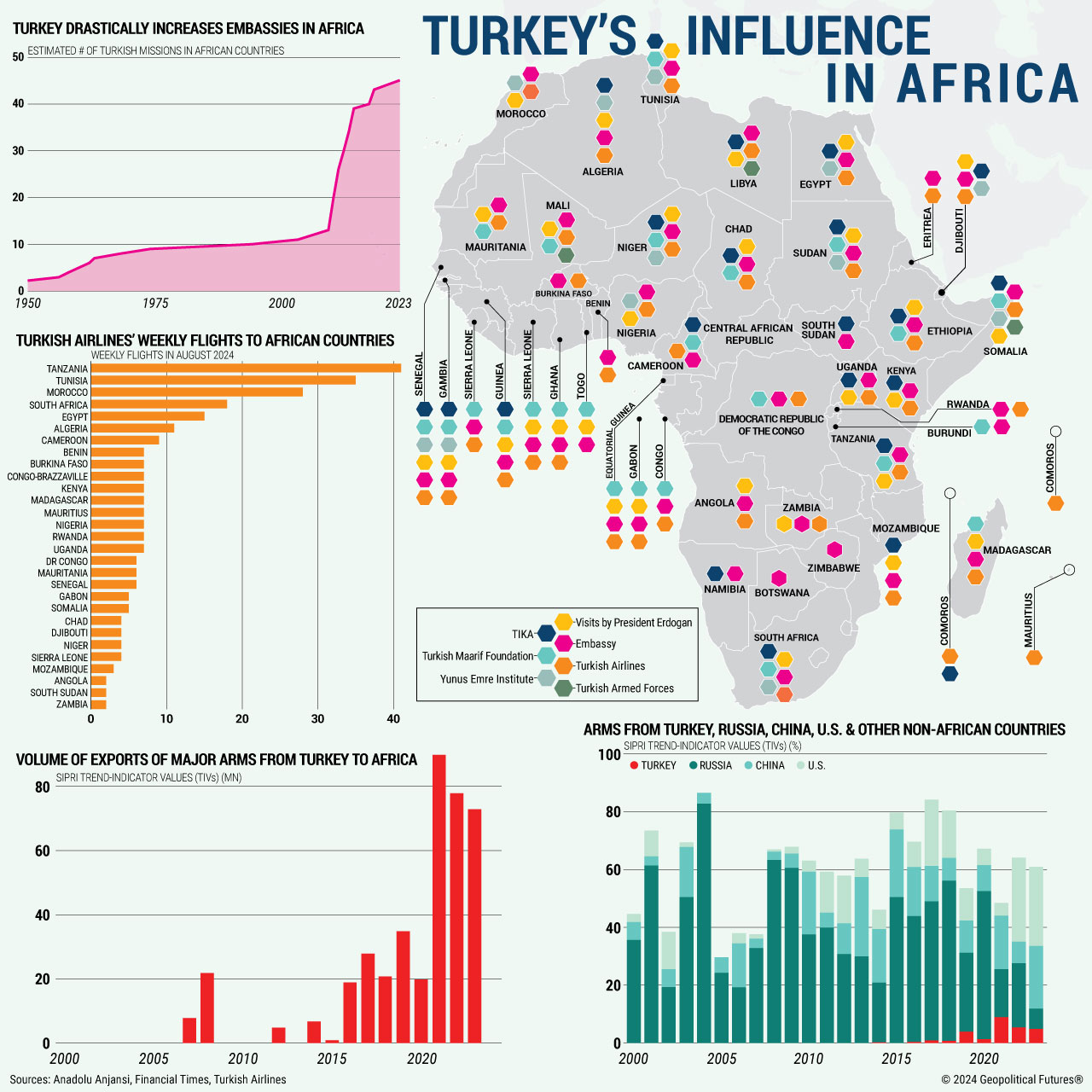Since Recep Tayyip Erdogan came to power, Turkey has taken a greater interest in Africa than any other nation. Ankara has aggressively expanded its influence across the continent in security, economic, cultural and political sectors. When Erdogan became prime minister in 2003, Turkey had 11 embassies in Africa. Recognizing untapped market potential, Erdogan prioritized expanding relations beyond traditional North African partners. Today, Turkey has 44 embassies across the continent, and Turkish Airlines serves the most destinations in Africa.
Turkey’s soft power strategy includes building mosques in countries like Ghana, Mali and Somalia; establishing Turkish schools, hospitals and cultural centers through bodies like the Turkish Cooperation and Coordination Agency (TIKA) or the Yunus Emre Institute; and offering scholarships and higher education programs, for example through the Turkish Maarif Foundation. These efforts have paid off. Turkey’s trade with Africa reached $32 billion last year, a 50 percent increase over the past decade. Turkish companies have secured key positions in sectors like construction and energy. Turkey recently signed a maritime security deal with Somalia, granting Ankara rights to offshore oil and gas drilling in Somali waters.
Turkey’s security presence in Africa has also grown significantly. Turkish drones and small arms are now common in African militaries, and private security contractors are active in conflict zones, similar to Russia’s Wagner Group. Ankara aims to expand further, including into sectors like mining. Turkey’s early recognition of Africa’s potential has established it as a major partner on the continent. Other Middle Eastern powers, such as Saudi Arabia, Iran and the UAE, now seek to follow Turkey’s model but will struggle to match Ankara’s established presence and ongoing expansion.





